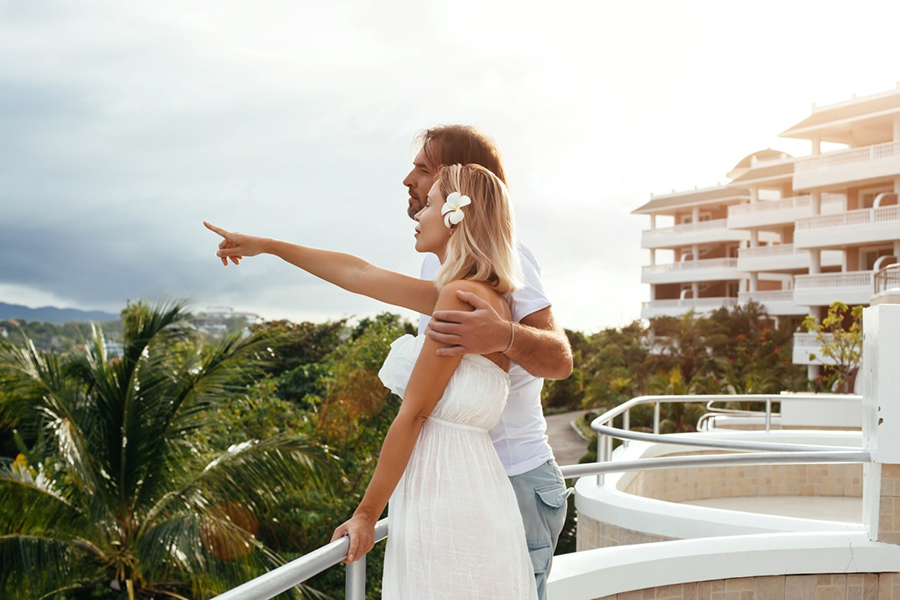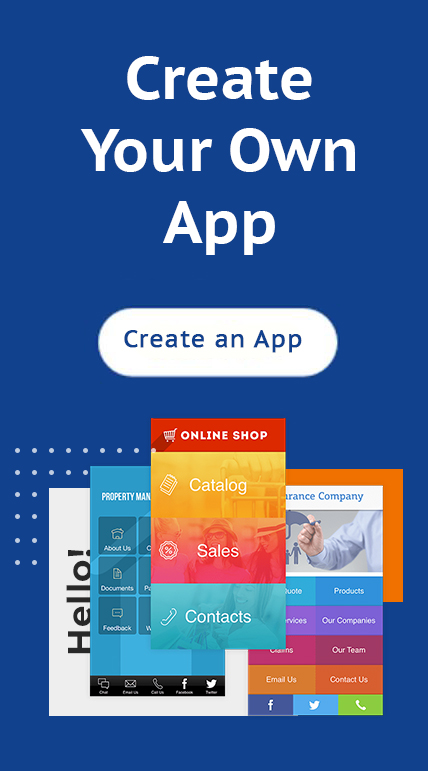Mobile Apps: Redefining the Hospitality Industry
Over the last two decades, smart mobile devices have gone from futuristic, niche-marketed tech to a staple in daily life. According to Statista, the number of smartphone users stands at 3.5 billion, and mobile apps account for more than 50 percent of all website traffic globally. These smart gadgets and the apps that run on them are taking over the world, and their disruption is being felt across numerous sectors of business.In hospitality, players are increasingly coming to grips with the wealth of opportunities that smartphones and tablets bring to the table. As J.D. Power and Associates puts it, mobile apps are becoming as crucial to the hotel guest experience as soft pillows, extra towels, and good pricing.

Giving prospective guests the ability to access information, find deals and make bookings with their smartphones can lead to higher satisfaction and recurring clients. Additionally, as you will learn below, the right apps can also streamline hospitality workflows and processes, leading to more efficient staff and reduced operating costs.
What Do Clients in The Hospitality Industry Want?
As with all other industries, customer preferences and behaviors in the hotel business are always changing. In today’s overly digitized world, guests expect a hotel to be using current and emerging technologies to offer a more comfortable, hospitable experience. With that in mind, any hotel that is still requiring guests to stand in line and fill out paperwork to make a booking is dangerously slacking.Customers in the hospitality sector want a seamless check-in/check-out process that enables them to take care of all their travel arrangements before they even leave their homes. On arrival, they can gladly bypass the front desk and proceed to begin their stay.
Hotel guests also demand quick access to information. They want to know a hotel’s accommodation options, dinner menu, entertainment recommendations, transportation services and more, without having to get into lengthy conversations with the staff. Technological advancements have fueled customer desire for convenience and instant gratification, and in the wake of sky-rocketing competition, businesses cannot afford to lag behind.
Mobile Apps Have the Answers
Mobile devices have proven remarkably effective in attracting guests and keeping them happy by placing all the services that a hotel provides at their fingertips.Below are five key ways that mobile apps are transforming the hospitality industry.
1. Service anytime, anywhere
Guests expect stellar service experience whenever they visit a hotel. With mobile technology, however, their perception of good service is changing. Smartphones have demonstrated to customers that they can get what they want when, where and how they want it. In hospitality, therefore, the hot commodity is giving guests the ability to interact with a hotel as they please.Mobile apps can give prospective clients as much control of their experience as possible before, during and after their stay. A mobile-based self-service platform can enable guests to make reservations, book recreational appointments, call a valet, check in, request for room service, and check out, all on their own using their smart devices.
The purpose of implementing mobile apps may seem like eliminating face-to-face interaction but in truth, it is about giving guests the option of serving themselves at their convenience. From a hotel operations standpoint, apps can also mitigate bottlenecks, lighten staff workloads and reduce wait times.
2. Live information sharing
Shangri-La Hotel, The Marina Cairns, for instance, leveraged the iBuildApp platform and created an app. The mobile app enables users to keep up to date with what is happening in the hotel as well as the beautiful city of Cairns, Queensland, Australia.This mobile application establishes a quick and effective direct communication channel between Shangri-La Hotel, The Marina Cairns and its guests. With the app, clients can receive notifications about new offers and discounts, and they can make enquiries right through their smartphones.

Other app features such as live chat or a virtual chatbot will also enable a hotel to keep customers engaged as they are assisted in picking the best services for their needs.
Hotels that use online Content Management Systems also stand to benefit significantly from mobile apps. CMSs are effective managers of the creation and modification of digital content, but on their own, they cannot guarantee that the new information has reached the intended customer.
Hospitality mobile apps can work with a hotel’s CMSs so that changes are instantly conveyed to clients through app notifications or emails. Hotel managers can therefore add or remove offers or events in real-time with confidence that the users are continuously in the loop.
3. Smarter decisions informed by customer data
A mobile app gives clients a platform to interact with a hotel in numerous ways, and how they behave when using it can give hotel owners valuable insights into their preferences. Infusing current data collection and analytics techniques to a mobile app can give hotel owners a thoroughly effective collection center for data that will let them know what packages clients are viewing and choosing the most, peak times for specific services, customer demographics and so on.Statistics reveal that companies that adopt a data-driven approach are six times more likely to achieve their profit goals. Accurate and relevant customer data makes it possible, and the right mobile app can be the vehicle that hospitality businesses need to collect this information. Making decisions like the marketing strategy to deploy, the investment to make, or perhaps how to deploy specific services and personnel to fulfil fluctuating demand can get significantly easier with insights gathered from mobile applications.
4. Efficient staff
Productivity tools significantly simplify work for staff in all industries and hospitality is no exception. Mobile apps make it possible for hotel staff members to stay on top of processes and respond quickly to problems. With messaging and scheduling apps, they can coordinate with each other more effectively, and with mobile CMSs they can modify reservations and room assignments without needing to stop by the front desk.Hotels can also make more efficient use of their rooms by connecting with guests in real-time to know their estimated arrival times and handling cancellations faster. Moreover, by giving guests the option of self-service to customize and organize their experience, hotels can allocate labor to operational areas that require more thought and less repetitive computation.
5. Loyal customers
Mobile apps are phenomenal tools for building and sustaining brand awareness because they get a product or service as close to its intended market as possible and make it easy for clients to interact with it. Hotels can use feedback and instant review options to establish their footing in social media and attract new customers. Clients are typically more inclined to trust online reviews written by previous guests than branded content. Positive feedback can boost customer base, while negative reviews can lead to quick response to problems.Besides receiving helpful feedback, mobile apps have also proven to be effective vehicles for loyalty programs. Using push-notifications, hotels can send their clients alerts about new offers, promotions and discounts that encourage them to make additional purchases, consider a specialty service, or simply engage with the business. Furthermore, an app can give users the ability to monitor their rewards, be they in points or redeemable gift cards, choose when to redeem them, and even transfer them as gifts.
By promoting this form of engagement, a hotel can build a loyal base of customers that also become indirect ambassadors of the brand.

Mobile Apps and The Hospitality Industry of The Future
Currently, businesses are racing to adapt to the emergence of new customer expectations that are influenced by the mobile evolution. Today’s guests demand mobile experiences that follow them through their journey, enhancing convenience every step of the way.Mobile technology is improving the quality of service in hospitality by promoting self-service, boosting staff efficiency, and streamlining the interaction between a hotel and its guests. It is also providing hoteliers with a wealth of data that is helping them to improve guest experience.
In the future, you can expect more businesses in the hospitality space to embrace mobile apps. However, while hotels may want to deliver mobile experiences in their unique ways, one central theme will stick: mobile apps are not meant to undermine the value of traditional service. Instead, they provide opportunities to redefine and enhance service by combining traditions with digital touchpoints to create a seamless, personalized, and more accessible experience for clients.
Feel free to utilize the iBuildApp Travel & Hotels templates and create your perfect app. Also please let us know about what other features you think are important.
